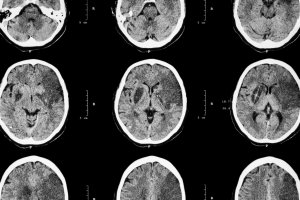Today is World Stroke Day. Around 80% of all strokes are preventable.
DESPITE THE DRASTIC effects of the COVID-19 pandemic on our physical, emotional and social well-being, World Stroke Day should continue to serve as a reminder of how important it is that we take care of ourselves to prevent future strokes.
Written Content By Ghulam Abbas Kharal, M.D. and Shazam Hussain, M.D. via US News & World Report

As difficult as it may seem to stay calm and focus on our personal well-being despite the multiple stresses as a result of the pandemic, we must continue to work on stroke prevention as a community. During this pandemic, those with chronic conditions have had challenges with limited access to outpatient care. With closures of gyms, plus shelter-in-place orders around the world, it has understandably been difficult to maintain good physical and emotional health. World Stroke Day can be an opportunity for us to focus on our well-being.
We estimate that 80% of all strokes are preventable. The most important modifiable risk factors (e.g., factors that one can control) are:
- Diet.
- Lack of exercise.
- Smoking.
- Alcohol use.
- High blood pressure.
- High blood cholesterol.
- High blood sugars (diabetes).
- Stress (to some degree).
- Abnormal heart rhythm.
Outlined below are risk factors we can help control and decrease our risk of stroke:
Hypertension, aka high blood pressure:
According to the American Heart Association, a normal blood pressure is defined as less than 120/80mmHg. It is very important to know your numbers. Having elevated blood pressure can increase your risk of heart disease and is one of the strongest risk factors for stroke. Eating healthy meals that are low in salt – less than 2,300 mg per day – can greatly help control blood pressure. Keeping one’s weight or body mass index in a healthy range, taking medications as prescribed and increasing physical activity can also aid in lowering blood pressure.
Diabetes
Diabetes makes it difficult for the body to process and store sugar for energy, leading to high sugar levels in the bloodstream. Unfortunately, diabetes rates are increasing, with younger and younger people being diagnosed with this condition. Being overweight, having a poor diet and lack of exercise all contribute to developing this condition. Diabetes can damage blood vessels and other organs, causing serious health problems. Diet and exercise, in addition to adhering to prescribed diabetes medications, helps control diabetes and ultimately reduce stroke risk. Read more from US News & World Report.
Follow more health and other related stories from News Without Politics





